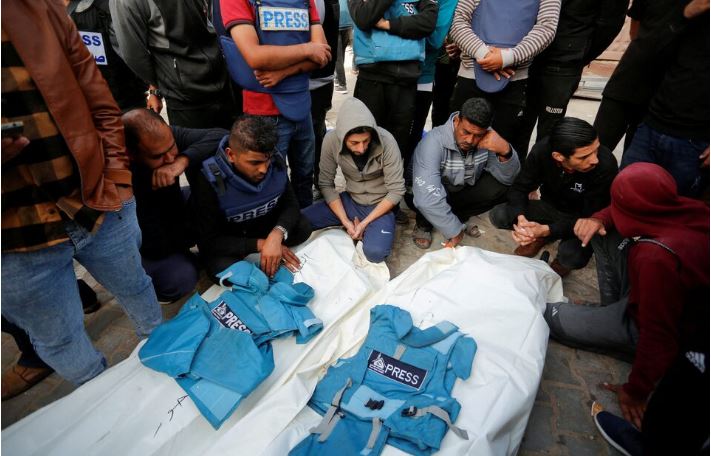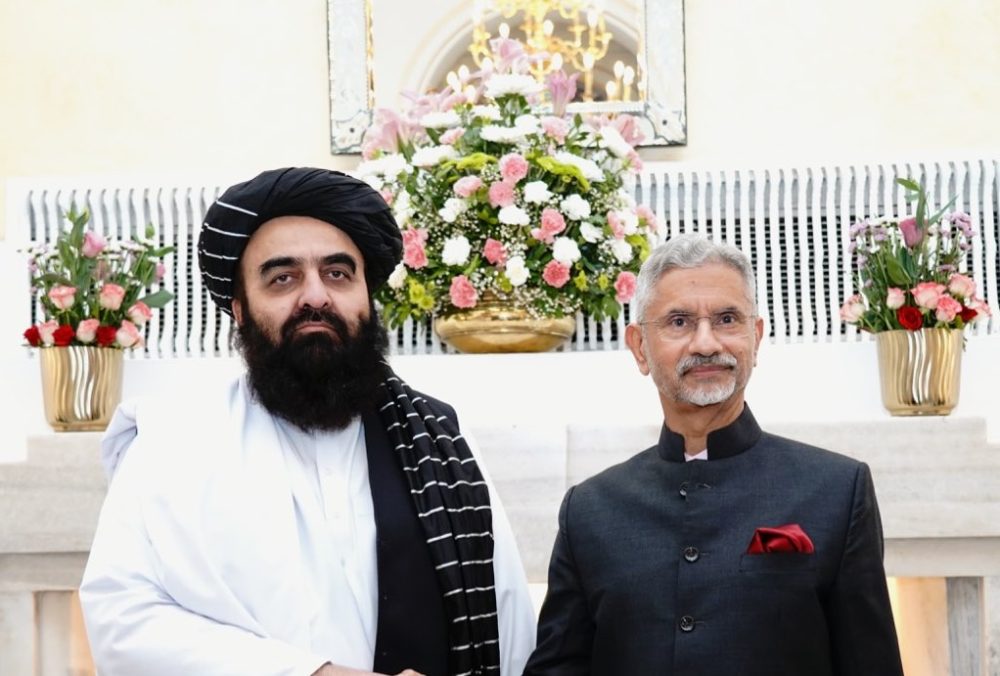The Pakistani establishment appears unwilling to listen to the voices of the oppressed Kashmiris. Instead of addressing the legitimate grievances of the people, it has chosen to flex its military muscle, in a futile attempt to crush the spirit of resistance … writes Dr Sakariya Kareem
Pakistan’s heavy-handed approach to stifling dissent and protests in the regions under its illegal occupation has once again come to the fore. Recent reports from Pakistan-occupied Jammu and Kashmir (PoJK) paint a grim picture of a desperate administration resorting to militaristic tactics to quell legitimate protests by the oppressed populace. As tensions simmer in PoJK over the deteriorating economic situation and dismal living conditions, the Pakistani government has made the ominous decision to deploy troops from Punjab Province to the region. Personnel from the Frontier Corps, Rangers, and the Quick Response Force (QRF) of Punjab have taken to the streets, in a blatant show of force aimed at intimidating the protesters.
The protests, scheduled for May 11th, have been organised by the United Kashmir People’s National Party (UKPNP) and the Joint Awami Action Committee (JAAC), two prominent groups representing the aspirations of the people of PoJK. Their demands are not unreasonable – an end to unjustified taxation, relief from exorbitant electricity bills, measures to combat uncontrolled inflation, and ensuring adequate supplies of essentials like flour.
However, the Pakistani establishment appears unwilling to listen to the voices of the oppressed Kashmiris. Instead of addressing the legitimate grievances of the people, it has chosen to flex its military muscle, in a futile attempt to crush the spirit of resistance. The leaders of the UKPNP and JAAC have issued stern warnings to the Pakistani administration against the use of brutal force against peaceful protesters. They have made it clear that any such action will be met with international protests and demonstrations, drawing global attention to the plight of the people of PoJK.
The demands of the protesters go beyond mere economic concerns. They are seeking ownership of local land and water resources, as well as a fair share of the royalties from the hydroelectric power generated by dams located in PoJK and the neighbouring Pakistan-occupied Gilgit Baltistan (PoGB) region. This underscores the deep-rooted sense of injustice and exploitation felt by the Kashmiri people, who have been systematically deprived of their rightful share in the natural resources of their homeland. Despite the billions of dollars in remittances sent annually by the Kashmiri diaspora for the development of PoJK and PoGB, the people of these regions continue to suffer from severe underdevelopment, as these funds are allegedly siphoned off to Pakistani banks.
The leaders of the UKPNP, including Chairman Sardar Shaukat Ali Kashmiri and former JAAC spokesperson Sardar Nasir Aziz Khan, have highlighted the humanitarian crisis that has gripped PoJK for over four years, with the situation worsening with each passing month. The deployment of military forces is not a new tactic employed by Pakistan to suppress dissent in the occupied territories. According to PoJK activist Amjad Ayub Mirza, the administration had previously requested the deployment of 600 police personnel and six platoons of the Civil Armed Force (CAF) to maintain law and order and protect Chinese nationals following recent blasts involving Chinese citizens in April.
This heavy-handed approach not only violates the fundamental rights of the Kashmiri people but also exposes the fragility of Pakistan’s control over the occupied territories. A regime that commands the genuine loyalty and support of its people would not need to resort to such draconian measures to maintain its grip on power. The international community cannot remain a silent spectator to the unfolding crisis in PoJK. The actions of the Pakistani government constitute a gross violation of human rights, including the rights to peaceful protest, freedom of expression, and self-determination.
The United Nations and other global bodies must take cognizance of the situation and exert pressure on Pakistan to refrain from using force against peaceful protesters. The demands of the people of PoJK must be heard and addressed through dialogue and negotiation, not through the barrel of a gun. Furthermore, the international community should investigate the allegations of funds meant for the development of PoJK and PoGB being siphoned off to Pakistani banks. If proven true, this would constitute a grave injustice against the Kashmiri people, who have been denied the fruits of their own resources.
The road ahead for the people of PoJK is fraught with challenges, but their determination to fight for their rights is unwavering. The Pakistani government must recognize that its heavy-handed tactics will only serve to further alienate the Kashmiri populace and fuel the flames of resistance. It is time for Pakistan to abandon its policy of oppression and embrace a path of dialogue, respect for human rights, and genuine autonomy for the people of the occupied territories. Only then can the long-standing Kashmir dispute be resolved in a manner that upholds the principles of justice and self-determination, paving the way for lasting peace and stability in the region.









